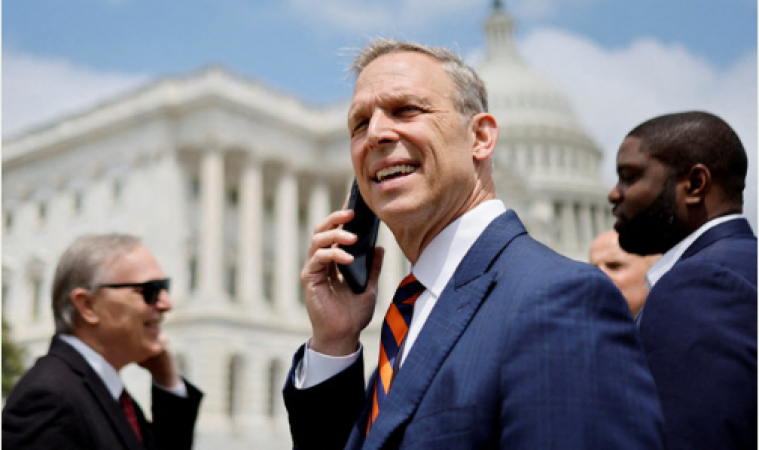
Washington: US appeals court has issued a ruling regarding the contents of Republican Representative Scott Perry's cellphone, providing insight into the ongoing criminal investigation into former President Donald Trump's efforts to overturn the 2020 election results.
The ruling, dated September 5 and made public recently, marks a partial victory for Perry, a Trump ally known for spreading unfounded claims of election fraud.
While some of Perry's communications were deemed protected as "quintessential legislative acts," others remain subject to review by a lower court, potentially holding implications for other members of Congress under investigation.
Also Read: 1,800-Year-Old Alien Dead Bodies Found in Mexico
Scott Perry, a retired US Army National Guard brigadier general representing a district in Pennsylvania, sought to prevent the Justice Department from examining the contents of his cellphone, which had been seized by the FBI during the course of the investigation.
Perry invoked the Speech or Debate Clause of the US Constitution, asserting that his communications were shielded from scrutiny, as this clause grants members of Congress immunity from civil or criminal liability for their legislative actions.
The panel found that Perry's communications with fellow members of Congress concerning the certification of the 2020 election results qualified as "quintessential legislative acts" and were, therefore, protected by the Speech or Debate Clause. This aspect of the ruling represents a victory for Perry.
In contrast, the panel determined that not all of Perry's communications with individuals outside of Congress were automatically shielded. It ordered a lower court to conduct a comprehensive review of each communication to ascertain whether it fell within the purview of protection granted by the Speech or Debate Clause.
Also Read: Court Blocks Some of House's Trump Probe Requests for Congressman's Phone Records
The court's decision holds broader implications for the ongoing investigation into Trump's efforts to overturn the 2020 election. It also underscores the nuances of the Speech or Debate Clause and the extent of its protection for members of Congress.
While the ruling represents a partial victory for Scott Perry, it is far from a complete exoneration. The Justice Department retains the potential to review some of Perry's communications and pursue charges if any legal violations are identified.
The Justice Department's inquiry into Trump's endeavors to overturn the election outcome remains active. Consequently, other members of Congress could find themselves facing legal scrutiny and potential charges in the future.
The ruling serves as a reminder that the Speech or Debate Clause does not confer absolute immunity upon members of Congress. It provides protection solely against civil or criminal liability for legislative actions, leaving other communications subject to investigation.
The Justice Department's willingness to contest the scope of the Speech or Debate Clause underscores its commitment to investigating potential wrongdoing, even within the legislative branch, if deemed necessary.
Given the complexity and significance of the ruling, it is highly likely that it will be appealed to the Supreme Court. The Court has yet to provide a definitive ruling on the extent of the protections offered by the Speech or Debate Clause, making this a critical point of contention. The recent ruling by a US appeals court regarding the protection of Scott Perry's cellphone contents in the Trump election probe represents a pivotal development in the ongoing investigation.
While it offers Perry a partial victory by safeguarding certain legislative communications, it leaves other communications open to further review.
The ruling holds implications for the broader investigation into Trump's election efforts and underscores the nuanced application of the Speech or Debate Clause in safeguarding members of Congress from legal liability. The ultimate outcome may hinge on a potential Supreme Court review, adding another layer of complexity to this high-stakes legal drama.